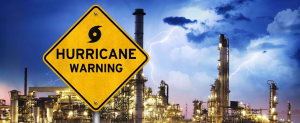The health and well-being of communities, companies, and lives depend on responding to emergencies with the highest level of skill and professionalism. Here are four critical steps every company must take.
Specialized Waste Systems is pleased to be featured in the July 20, 2021 BIC Magazine newsletter. The following is the text of the article.
Benjamin Franklin is quoted as saying, “By failing to prepare, you are preparing to fail.” For energy-related businesses across the Gulf Coast, failing to plan for the unexpected — storms, accidents, and incidents — is simply not an option.
Emergency Planning Quote: “Include the experienced professionals from Specialized in your emergency response training to better teach employees what to expect and how best to react.” — Mike Hill
Step One: Risk Assessment
The right response starts with an honest and thorough evaluation of all risks. Begin by identifying all potential emergency scenarios. Take stock of on-site hazards. Identify all areas where you might be vulnerable and apply practical hazard controls.
In assessing risk, it’s often helpful to bring in outside experts as those closest to a situation may not see potential problems. “Familiarity can be a dangerous thing,” says Mike Hill, Vice President and General Manager of Specialized Waste Systems. “People who work in the same environment day-in and day-out may not see potential risks. An outside pair of eyes can view your business from another perspective.”
Hill says it’s also important to differentiate and plan for both accidents and incidents. “Accidents and incidents are almost always preventable,” he says. “They are most often caused by someone not following proper procedures or policies. Near miss incidents are a great opportunity to reevaluate the conditions and behaviors associated with the accident that almost happened. Applying effective corrective actions for accidents and incidents closes the loop.”
“With any risk assessment or correction action, consider the vulnerabilities of your employees, the environment, and company assets — in that order.”
Mike Hill Vice President And General Manager, Specialized Waste Systems
Step Two: Response Plans
Protocols and procedures must be outlined for each identified area of risk. “The more specific your emergency response plan is, the better. A general plan will leave you fumbling when decisive action is required,” says Hill. While federal and local regulations require emergency planning, not all response plans are created equal, he says. “Unfortunately, some plans are written in a way that makes them difficult to understand. Others can sit on a shelf and become outdated.”
An effective emergency response plan includes the elements outlined by HAZWOPER (Hazardous Waste Operations and Emergency Response), including pre-emergency planning, well-identified personnel roles and lines of authority, emergency prevention, environmental protection, places of refuge, site security and control, evacuation routes and procedures, decontamination, emergency medical procedures, critiques of response, and personal protective equipment. Above all, Emergency Response Plans must clearly define how to protect employees, visitors, contractors, and associated contractors.
Hill says companies should pay close attention to all building utility controls, emergency power sources, and site protection systems. “Containing and limiting the damage from an incident or accident often rests on the management of these areas,” Hill says.
“Containing and limiting the damage from an incident or accident often rests on the management of these areas”
Mike Hill Vice President And General Manager, Specialized Waste Systems
Step Three: Frequent Training
A response plan is only effective if all personnel understand their specific roles and responsibilities. To ensure plans are implemented correctly, semi-annual and annual drills (some of which are mandated) are essential for being in a state of preparedness.
“Unfortunately, at some point, something is going to happen. So it’s vital to be prepared, have the proper team in place, and conduct drills so that everyone knows exactly what to do in the case of a spill, fire, or other incident,” says Hill.
Hill says this is another area in which relying on outside partners can be wise. By employing industry veterans to run drills, debrief, and make corrections to plans, each exercise will go much farther in raising a facility’s level of safety. Because containment and limiting damage is key to any response, listening to the advice of people who have been through actual responses to emergencies of all kinds is simply the best way to learn.
“Every emergency, and therefore, every response will be different,” Hill says. “By including more people with more experience in your training protocols companies can better teach employees what to expect and how best to react.”

Step Four: Attention to Detail
Emergency and storm preparedness and 24/7 expert response plans are one specialty among several at Specialized Waste Systems. Many of the company’s employees are industrial waste and emergency response experts, able to apply years of on-the-job experience to customer situations. Hill, with more than 20 years of experience in the field, encourages his teams and clients to stay focused and sharp, no matter how prepared a person thinks they are.
“Never take any step for granted,” he says. “Complacency is one of the biggest risks that all of us face. Always be listening, learning, and training. I do a lot of reading and studying to stay informed about the newest controls and methods. In this business, safety and readiness are jobs that are never done.”
Specialized Waste Systems helps secure physical assets, protect personnel, and ensure production reliability with complete storm preparedness and emergency risk assessments, plans, and training.
Learn more about how to stay safe and productive, no matter the circumstances. We invite you to email Mike Hill at mhill@specializedwaste.com, call anytime at 281-452-1735 and go to specializedwaste.com for more information.




